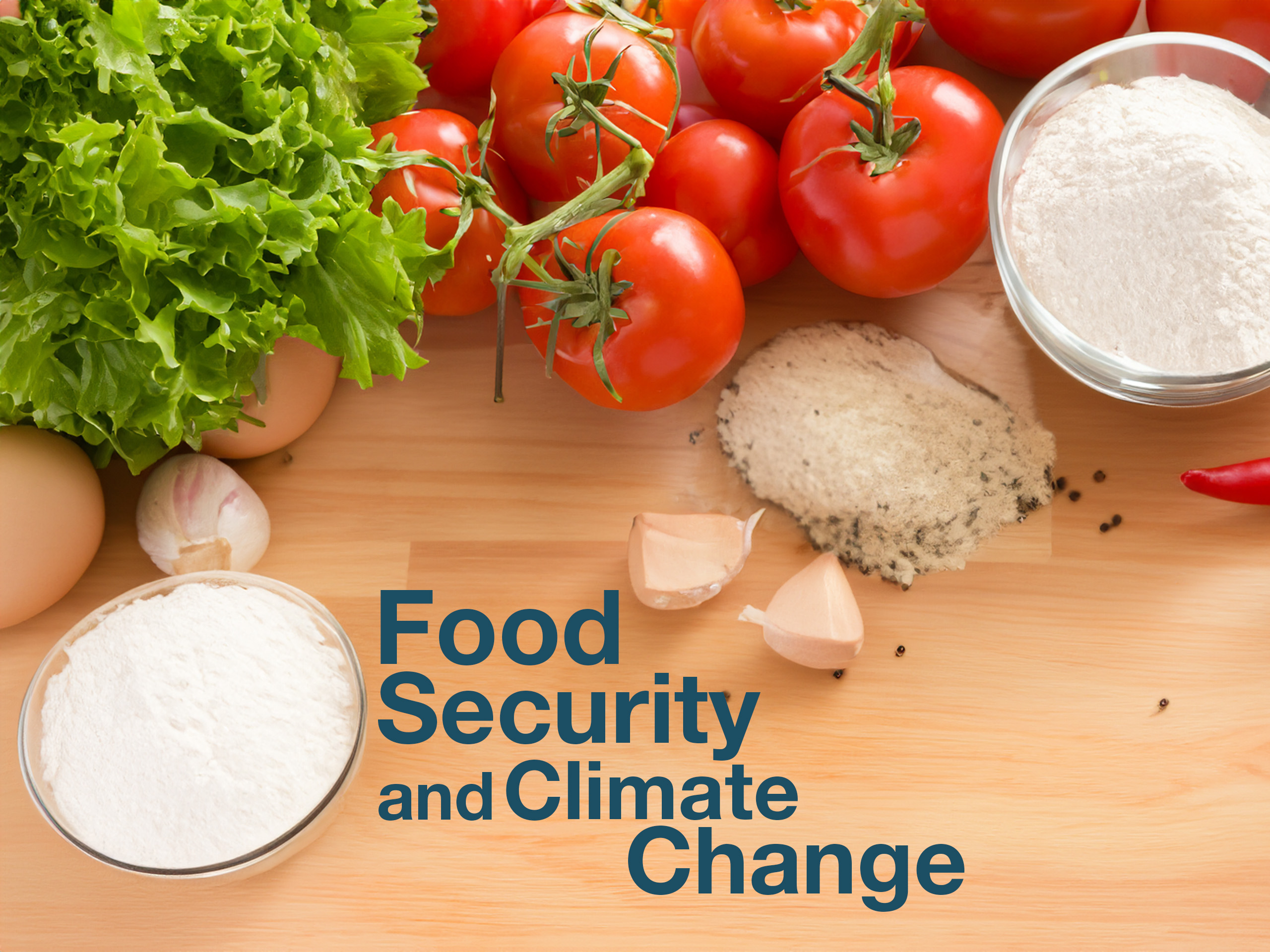For Good Food and Great Weather, We Need to Act Differently!
In the heart of Nigeria, the agrarian landscape is undergoing a profound transformation—not by choice, but by force of nature. With its erratic weather patterns and rising temperatures, climate change has become a formidable adversary to our farmers, posing an imminent threat to the nation’s food security. The World Bank described climate change as the significant variation of average weather conditions becoming, for example, warmer, wetter, or drier—over several decades or longer. It is the longer-term trend that differentiates climate change from natural weather variability.
Changes in temperature, precipitation patterns, and extreme weather events associated with climate change have proven to have adverse effects on the growth and productivity of crops. For instance, rising temperatures can lead to heat stress in crops, affecting their development and reducing yields. Changes in precipitation patterns may also result in droughts or floods, further harming crop production. Such disruptions in agriculture can lead to decreased food availability, affecting both local and global food supplies.
Tales of Struggling Farmers
Stories from the fields paint a stark picture of the short-term havoc wreaked by climate change. Meet Amina, a small-scale farmer from Kebbi State, whose once-reliable rainfall patterns have become increasingly erratic. Her maize crops, a staple for many in the region, wither under the scorching sun, and her family’s livelihood hangs in the balance.
Real-time interviews with farmers like Amina reveal the immediate challenges they face. Unpredictable rainfall disrupts planting schedules, leading to crop failures and reduced yields. Traditional farming calendars, passed down through generations, are becoming unreliable guides in the face of a changing climate. Consequently, the local markets in states like Kebbi and Sokoto witness a surge in food prices. As demand outstrips supply, the vulnerable segments of the population bear the brunt of these fluctuations, struggling to put nutritious meals on their tables.
However, amidst the adversity, stories of resilience emerge. Farmers like Ibrahim, from the fertile plains of Benue, are adapting to the changing climate with innovation and determination. Ibrahim has embraced drought-resistant varieties of crops, and he practices conservation agriculture to preserve soil moisture. His story echoes a growing trend of farmers exploring climate-smart agricultural practices. The use of technology is becoming a game changer for farmers across Nigeria. Mobile applications that provide real-time weather updates, crop management advice, and market information empower farmers like never before. These digital tools bridge the gap between traditional wisdom and modern science, offering practical solutions for climate resilience.
Yet, it is not only individual farmers shouldering the burden of adaptation. In recognition of the severity of the situation, the Nigerian government has implemented various policies and programs to address the short-term and long-term implications of climate change on food security. Stories emerge from state-led initiatives, like the Climate Smart Agriculture (CSA) program in Lagos State, where farmers are trained in sustainable practices. Government-backed campaigns promoting improved seed varieties and adopting agroforestry practices are tangible steps toward a more climate-resilient agricultural sector.
Although initiatives by individuals and the government provide hope, a coordinated and long-term response is needed to address the long-term effects of climate change on Nigeria’s food security. Narratives of communities uniting to undertake reforestation initiatives are heartening, particularly in the northern regions where the existential threats posed by desertification are present. Villagers plant trees as a symbol of their shared resolve to fight climate change, not simply as a source of shade but also as a barrier against increasing deserts.
However, simply making occasional efforts is not enough to prepare for the long-term effects of climate change. Investing in research and development for crops that can survive in changing climates is important. Scientists are working hard to create new types of crops that can handle extreme weather conditions, ensuring a steady supply of food. These stories of scientists working on resilient crops deserve more attention.
It is clear that the effect of climate change on Nigeria’s food security is a prevailing challenge rather than a phantom. In addition to government programs and community-led activities, firsthand accounts from farmers provide insight into the vulnerability and resilience that define this battle. We are reaching a turning point as a country. The tales of adaptation, creativity, and teamwork that we tell now will influence the story of our future. Though climate change is undoubtedly an enemy, we have the chance to overcome it by redefining our relationship with the land, rethinking sustainable farming methods, and creating a resilient future for Nigeria.
It is a call to action for communities to unite, legislators to pay attention to the stories coming from the front lines, and each of us to understand our part in this common story. The storm has arrived, but there are hints of a more secure and resilient future for Nigeria in the tales of adaptability and tenacity.



